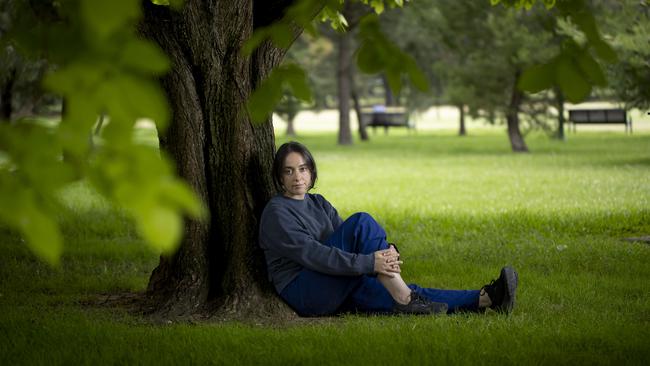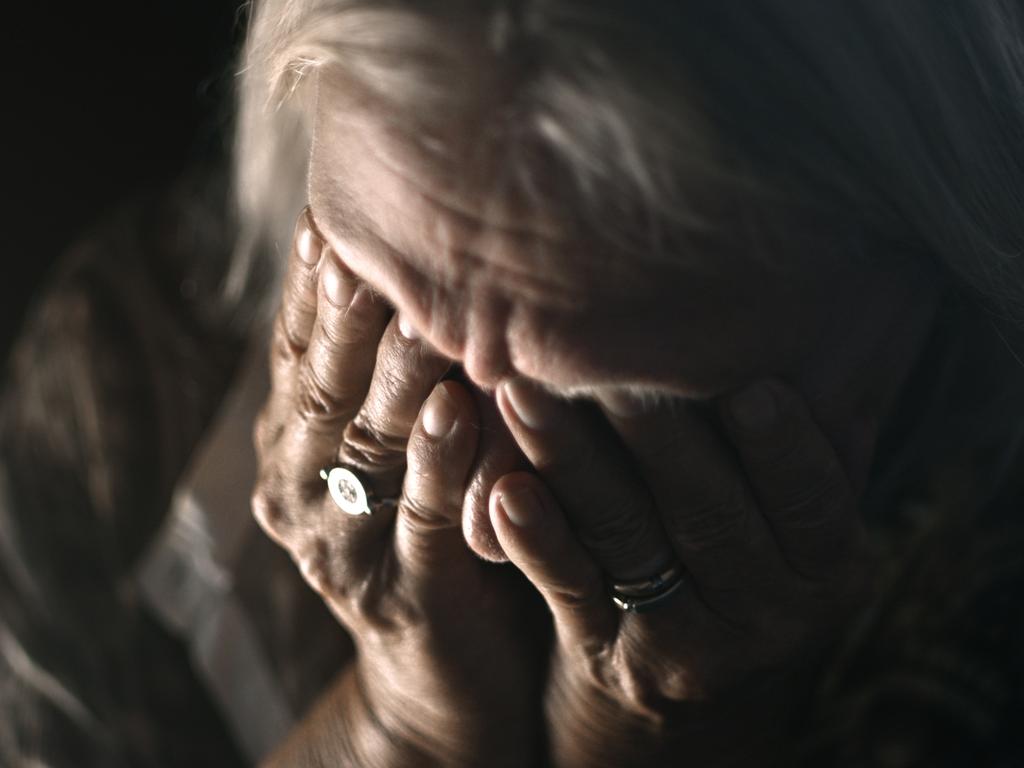Serotonin theory of depression under attack amid to push to deprescribe antidepressants
The world’s first psychiatry guidelines on de-prescribing antidepressants have sparked a fierce debate in medicine as the debunked ‘chemical imbalance’ theory comes under scrutiny.

The publication this week of the world’s first psychiatry guidelines on deprescribing antidepressants has renewed a heated debate in medicine over the use of the blockbuster drugs.
The Maudsley Guidelines, used by doctors as a “bible of prescribing”, took aim at the limited evidence of antidepressant drugs’ efficacy, the severe withdrawal symptoms experienced by many patients who try to get off them, and the medical profession’s widespread failure to acknowledge that the psychoactive medications result in frequent adverse effects and physical dependence that make ceasing them an almost impossible task for some people.
“There has continued to be debate regarding the efficacy of antidepressants,” the Maudsley Guidelines on Deprescribing state.
This is despite the fact that one in six people in many Western countries, including Australia, take them daily.
“Alongside this disquiet regarding overprescription there has been renewed scrutiny of the effectiveness of some psychiatric medications,” the guidelines state.
“For a portion of patients, the benefits of medication will be outweighed by adverse effects.
“The myriad adverse effects from psychiatric drugs range from weight gain and other metabolic consequences, particularly noted for atypical antipsychotics, to more subtle effects such as impaired capacity for feeling, memory or concentration caused by many psychiatric drug classes. Sexual side effects are very common, especially with selective serotonin reuptake inhibitors (SSRIs), where they occur in half or more of patients, and other adverse effects often thought to be short term have been found to persist.”
The drugs – lifesaving for some patients – are hell for others. As the proportion of patients taking SSRIs has increased exponentially alongside evidence that they do not work in the way drug companies have long claimed, medicine faces a reckoning. As many as 90 per cent of people – according to myriad surveys – still believe that depression is caused by a chemical imbalance in the brain, namely a deficiency of the “happy” hormone serotonin. The serotonin theory has been comprehensively debunked but it continues to pervade medicine, fuelling the trend of overprescription.
Defenders of the efficacy of the drugs, which some studies have found work no better than a placebo, are left prosecuting the tortuous argument that even though we don’t really know how SSRIs work, they do work for many, so that’s all that matters – and even if the effect boils down to a placebo, that’s ultimately still a good outcome.
“Psychiatrists fail to appreciate the enormous impact for patients of being told that depression is caused by a chemical problem in the brain and that antidepressants can fix this problem,” said British psychiatrist Joanna Moncrieff in a recent blog post in response to her landmark comprehensive umbrella review of the evidence for a biochemical basis to depression authored with trainee psychiatrist Mark Horowitz, published in the journal Molecular Psychiatry.
The paper, which sparked a flurry of duelling letters in the scientific journal amid a fierce backlash from defenders of antidepressant drugs, concluded there was no convincing evidence for the serotonin hypothesis, and the preponderance of studies had found people with depression had no less serotonin in their brains than people without.
The countervailing view is that there is an underappreciation of the complexities of neuroscience and neuropsychopharmacology among critics of the serotonin hypothesis, and that depression clearly has a biological and possibly genetic basis even if we don’t yet fully understand these mechanisms. “Skating over this issue to turn to alternative hypotheses about the cause of depression or the mechanism of action of antidepressants neglects to address the fact that patients have been misled,” Moncrieff wrote in the blog entry in response to the widespread criticism.
“It is alarming to hear that there is a problem in your brain and it is misleading to suggest that we know there are drugs which can fix it.
“What is being dismissed as trivial semantics by experts has had consequences for the life choices and self-perception of hundreds of millions of patients worldwide. Imagine being told that you had a major problem in your heart that required medication to fix – only to find out that that problem was not truly there.
“For the public, the chemical imbalance has been no straw man or semantic approximation, but something that has guided the direction of their lives, choices, and health.”
The serotonin hypothesis was first propounded in the 1960s by Harvard University psychiatrist Joseph Schildkraut.
It was simplified as a reductionist “chemical imbalance” theory and taken up with gusto by pharmaceutical companies as a marketing tool in the 1980s upon the advent of SSRIs. Despite its discredited status, the theory lives on even today in medical textbooks.
Serotonin is a natural body chemical that plays a large role in mood, and also helps control sleep-wake cycles, the body’s response to pain, feelings of wellbeing and sexual desire. Interestingly, serotonin is mostly in fact found in the gut, not the brain.
Despite acknowledging that the serotonin theory is too simplistic and probably has little basis in science, advocates of the importance of drugs – many of them with significant links to pharma – in treating depression maintain the condition has a basis in faulty brain chemistry, insisting that mental disorders are increasingly understood in terms of biological mechanisms including brain structure and neurochemistry.
This bloc has attacked critical psychiatry as producing misleading research riddled with errors, and embracing the supernatural. They insist the involvement of serotonin in the pathophysiology of depression is a complex matter, pointing out that the hormone is a versatile neurotransmitter with multiple families of receptors and subtypes. Measuring this serotonergic function in the brain is extremely difficult, requiring advanced neuroimaging. Psychiatrists don’t fully understand the architecture of this complex system, how it interacts with other systems that govern mood regulation, and less still how SSRIs act upon all of that – yet still most insist the drugs do work. Many patients who felt much better after taking SSRIs swear the same.
Scientific uncertainty, however, stands in sharp contrast with an apparent blind faith within general practice, seen in the alacrity with which SSRIs are doled out in Western countries, largely by GPs. The rate of prescription is alarming, given not only the lack of evidence for the drugs’ effectiveness but also the severity of the side effects for some people.
If tens of thousands of patients around the world who are flooding to online groups and forums are to be believed, these adverse effects very occasionally never disappear.
Young Melbourne nurse Rosie Tilli was prescribed the SSRI Lexapro in 2020 when she was suffering low mood and constant crying during Melbourne’s brutal first pandemic lockdown. She was reluctant to take the drug.
“I know people who have taken antidepressants and they just seemed really blunted,” Tilli says. “I kind of hesitated. But there was this whole narrative of ‘everyone’s on them, don’t be ashamed’. I actually asked the doctor about the risks and he just downplayed them.
Tilli sought a second opinion from a psychiatrist who reassured her. “He was just so confident in these drugs.”
Very soon after beginning to take Lexapro, Tilli felt her body and brain “just switch off”.
“It was as if all of my receptors were instantly blocked off,” she says. “I stopped crying, I couldn’t feel anything at all. It just felt like all of the pathways in my body and brain were instantly switched off.”
‘I felt like I could stick a knife in my vagina and I wouldn’t feel a thing. It’s like someone has cauterised the nerves.’
But more concerning than the emotional blunting was a sudden, profound feeling of sexual deadness. “I felt a total numbness in my vagina,” Tilli says. “Every single possible sexual side-effect occurred. I couldn’t orgasm, I had no sex drive. Doctors said depression can cause low libido, but it wasn’t like that at all. It’s a neuropathy of some kind or other. I felt like I could stick a knife in my vagina and I wouldn’t feel a thing. It’s like someone has cauterised the nerves.”
Four years after stopping Lexapro, these devastating symptoms persist. The syndrome that Tilli describes has been dubbed Post-SSRI sexual dysfunction (PSSD) which patients believe may be permanent. Most doctors do not recognise PSSD as a medical condition; indeed many psychiatrists point-blank deny that sexual side effects can continue indefinitely. But countless thousands of patients around the world say they’re experiencing it, and the highly respected European Medicines Agency has officially acknowledged that sexual dysfunction can endure after SSRI treatment stops, with symptoms including decreased libido, loss of genital sensation or genital anaesthesia, and pleasureless orgasm.
An April 2023 study, published in the journal Annals of General Psychiatry, reported that PSSD is a “well-documented side effect” of antidepressants and assessed the risk as one in 216 patients prescribed an SSRI.
But when Tilli reached out for help, she was told by a mental health service she was delusional and should take psychiatric medication.
The manufacturers of Prozac have now added an addition to its drug’s label warning.
In Australia, the PSSD Network is now a registered charity, with patients fundraising to advance care and treatment for affected patients, and advance research projects into the syndrome amid a lack of interest by the psychiatry profession and pharmaceutical companies to fund research of their own.
“There’s like this massive what I would consider gross negligence towards the situation,” Tilli says. “To be completely honest taking this drug has destroyed my life in every way, shape and form. To have your sexuality removed from your body without any informed consent – and that this can be permanent – is like medieval torture.
“It’s a complete human rights violation. It’s not OK that this is being allowed to happen. It’s completely life- ruining.”
As patients who have experienced the downsides of SSRIs fight to raise awareness of their potential harms, psychiatry remains locked in a polarised debate over the causes and best treatments for depression, with those defending the biological basis of the condition continuing to heap scorn on those who argue an anti-reductionist position that overwhelming sadness and anxiety is not the result of broken brains at all, but is an entirely predictable response to significant life stressors – ordinary brains responding to adversity.

Amid this war in medicine, the describing guidelines are a watershed. “We need a public education campaign to reverse the messaging of drug companies and their academic spokespeople for years: letting the public know that feeling despair, hopelessness, sadness and grief is not a sign of an illness but a normal response to circumstances,” says Horowitz. “Many of the things that cause unhappiness – poverty, insecure work, relationship conflict, illness, etc – require specific individual and societal responses. And considering all of these issues as a one size fits all ‘chemical imbalance’ in people’s brains misses the specific context for each person.”
Non-pharmacological methods including cognitive behavioural therapy, mindfulness and exercise are recommended as the frontline treatment for mild to moderate depression by all of the world’s foremost medical and psychiatric guidelines, but that message hasn’t stopped the astronomical rates of prescription.
Sometimes the prescription patterns are wildly inappropriate – for instance, women going through menopause are frequently offered SSRIs instead of HRT, and women who have given birth to premature babies are offered antidepressants in the wake of the birth in hospital. Sometimes these patients, wrongfully prescribed in the first place, end up still on the drugs decades later.
The UK has led the world in a major deprescribing push, led by critical psychiatrists, embraced by the NHS and advanced by politicians. Yet in Australia, which has the second-highest rate of SSRI prescription in the world despite routinely scoring highly on global measures of happiness, the movement is yet to gain traction.
“Australia needs to take the same approach to prioritising patient safety as has been taken in the UK,” says Horowitz. “When the facts change, we should change our actions. It is clear now that these drugs are much harder to stop than previously realised, and people need help to safely stop them that is not currently available in the health system.
“ We should also acknowledge these drugs are far less effective than they have been touted to be, cause people a wide range of problems, and there are numerous alternative treatment options that are as effective and cost-effective.”




To join the conversation, please log in. Don't have an account? Register
Join the conversation, you are commenting as Logout